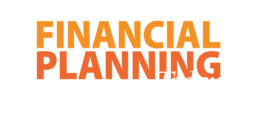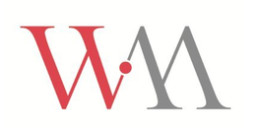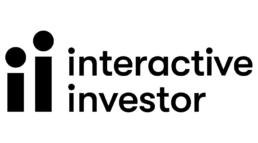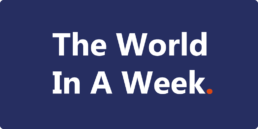The World In A Week - “That’s All Folks!”
As Michael Caine famously said in the iconic movie The Italian Job, “You’re only supposed to blow the bloody doors off!” Which seems to sum up 2020 well – it’s not what we wanted, not what we expected, and the ramifications keep rumbling on. Still, we are now into a new year, and surely 2021 cannot be as bad, unpredictable, or as turbulent as 2020. We have several vaccines approved that are starting to be rolled out, and central authorities are throwing sums of money around that belittle the policies instigated to address the Great Financial Crisis.
What else? Oh yes – after much tedious toing and froing we finally have a trade deal between Europe and the UK. What does it amount to? Well probably a small portion of what we had when we were a member of the EU! Still a deal is better than no deal, and the initial market reaction seems to have been taken well. However, the banking sector continues to be under pressure with persistent worries about the impact of the Coronavirus Pandemic on the global economy, or it could be extrapolated that lack of agreement on financial service equivalence in the Brexit deal, is really what’s driving negative sentiment towards the sector. All will become clear in time.
But let us get back to the positives – we have the vaccine rollout, which is generally providing a fillip for markets, and President Trump has finally signed-off the fiscal package for pandemic relief in the US providing a further positive driver.
As regards to 2020 I think we should sign-off in the words of Bugs Bunny “That’s all folks!”
Any opinions stated are honestly held but are not guaranteed and should not be relied upon.
The information contained in this document is not to be regarded as an offer to buy or sell, or the solicitation of any offer to buy or sell, any investments or products.
The content of this document is for information only. It is advisable that you discuss your personal financial circumstances with a financial adviser before undertaking any investments.
All the data contained in the communication is believed to be reliable but may be inaccurate or incomplete. Unless otherwise specified all information is produced as of 4th January 2021.
The World In A Week - Casting Our Net
After several weeks of non-stop gains, driven by vaccination hopes, markets paused for breath. The Food & Drug Administration in the US granted emergency approval for the use of the Pfizer-BioNTech vaccine last Thursday and it is likely that approval of the Moderna vaccine will follow suit. The US has ordered an initial 100,000 million doses and will roll out the vaccine this week. Similar to the UK, the US will first vaccinate the elderly, health workers and emergency crew. Coronavirus deaths have risen sharply since November in the US, recording 3,000 deaths in a single day, the highest daily total in the world to date.
Brexit negotiations continued to swing between a deal and no deal throughout the week. While Boris Johnson has warned that the most likely outcome will be a ‘no deal’, at the 11th hour on Sunday, both sides agreed to extend the deadline and have pledged ‘to go the extra mile’ to reach an agreement. Fishing rights, a level playing field for businesses to operate and how the agreement should be policed remain the stumbling blocks. The Pound rallied on the news, clawing back some of the previous week’s losses.
The deadline extension is deeply frustrating for UK businesses who now have even less time to plan how they will trade with Europe. If a deal is not reached, businesses will move to World Trade Organization rules when the transition period ends on 31st December 2020, which will result in tariffs and quotas being imposed on both sides. The UK car manufacturing sector has forecast a £55bn tariff hit over 5-years if no deal is reached and the British Retail Consortium expects an additional £3bn in food tariffs, which will likely be passed on to consumers.
In what has been a very difficult year, we are pleased that our Multi-Asset Blend Funds and model portfolios have delivered strong performance at the time of writing. We received external recognition for our efforts when we were awarded the coveted Investment Week Specialist Multi-Asset Group of the Year award at the beginning of December.
We would like to take this opportunity to thank our clients for their ongoing support of the Multi-Asset Blend Funds and model portfolios and wish you a happy festive period.
We will be taking a break from penning The World In A Week and will return on 4th January 2021.
Any opinions stated are honestly held but are not guaranteed and should not be relied upon.
The information contained in this document is not to be regarded as an offer to buy or sell, or the solicitation of any offer to buy or sell, any investments or products.
The content of this document is for information only. It is advisable that you discuss your personal financial circumstances with a financial adviser before undertaking any investments.
All the data contained in the communication is believed to be reliable but may be inaccurate or incomplete. Unless otherwise specified all information is produced as of 14th December 2020.
The World In A Week - Will The Year End In Tiers?
A fresh round of vaccine optimism underpinned another strong week for global equities with benchmarks hitting fresh new highs, including the Dow Jones Industrial Average crossing the 30,000 points threshold. The UK has secured another 7 million doses of the Moderna vaccine, which takes the total to 357 million doses of vaccines across 7 different providers. This is the equivalent of providing enough vaccine for 3.5 million people.
As the UK is set to phase out of its month-long lockdown, new tiers have been established which see much of the UK either remain or fall into tighter restrictions as we head into the festive period. Most of the North has been placed in tier three with London being in tier two.
Meanwhile, Chancellor Rishi Sunak presented the country’s latest spending forecasts with underlying debt set to rise to 109% of gross domestic product (GDP). The net debt as a percentage of GDP of the UK government was 83.9% in January 2020; however, given the public outcry for business loan support and the furlough scheme, this value has peaked to 100.8%. Sunak foresees a rise in the unemployment rate to 7.5% and a forecasted yearly GDP growth of -11.3% for 2020. In 2008, the unemployment rate spiked to 8% of the working population and currently sits at 4.8%. This figure is masked by the furlough scheme that came into effect in March, which has supported workers’ incomes as business functionality grinded to a halt.
Sunak also suggested that house prices would fall in 2021 and 2022 as income support schemes and the stamp duty holiday would be pared back. Housing activity has surged in recent months as buyers seek to profit from the stamp duty holiday which is set to finish at the end of March 2021. The average asking price has increased by 5.5% compared to a year ago with the number of sales rising by 70%. This has been fuelled by a greater savings rate as a large proportion of the workforce has shifted to working from home, benefiting financially from reduced commuting costs. Inner London house prices fell per the House Price Index data, however outer London prices grew. Pre-pandemic, a house could be purchased using a 5% deposit. However, this has surged to at least 10% as mortgage lenders are wanting more assurances, given the surge in demand and inherent risk.
Any opinions stated are honestly held but are not guaranteed and should not be relied upon.
The information contained in this document is not to be regarded as an offer to buy or sell, or the solicitation of any offer to buy or sell, any investments or products.
The content of this document is for information only. It is advisable that you discuss your personal financial circumstances with a financial adviser before undertaking any investments.
All the data contained in the communication is believed to be reliable but may be inaccurate or incomplete. Unless otherwise specified all information is produced as of 30th November 2020.
The World In A Week - Vaccine Variety
Last week was a broadly positive environment, which continued the buoyant mood of the markets over the course of November to date. Global Equities, as measured by MSCI All Country World Index (ACWI) rose +0.4% in local terms, but a strengthening Pound Sterling meant this was marginally negative for GBP investors. Riskier forms of Fixed Income continued to put in a good performance, with High Yield Bonds returning +0.6% over the week.
November has been a remarkable month in that we have seen the investment trends of the last year reverse violently. This has been driven by the announcement on the 9th of November of the efficacy of the Pfizer vaccine against COVID-19 and has been sustained by subsequent successful vaccine announcements since then – notably the Oxford/ AstraZeneca vaccine results announced just this morning.
The market impact of these news developments and their implications for a return to economic and social normality have been remarkable. Value equities have strongly outperformed Growth equities, almost doubling their return for the month-to-date. Growth equities, spurred by expensive tech names and those that benefit from work-from-home, have vastly outperformed more economically sensitive Value names which tend to be comprised of Banks, Materials and Industrial companies. Similarly, we observed strong outperformance of UK and European markets vs their US, Japanese and Emerging Market equivalents which had previously outperformed.
In Fixed Income markets we saw a strong rise in interest rates (albeit from very low levels) and a pivot from safe government bonds to riskier high yield and emerging market debt. This was coupled with a weakening of the US Dollar, which has been quite strong.
We think it is reasonably likely that these trends will continue, but challenges remain in the short term. Cases of COVID-19 are rising quickly in the US, and this could serve to dampen sentiment as we come into the year end. What is now clear, however, is that the world has a variety of vaccines to choose from, which are effective at a variety of temperatures and formats. The market likely has quite a bit to go when it comes to fully pricing in a world inoculated against COVID-19.
Any opinions stated are honestly held but are not guaranteed and should not be relied upon.
The information contained in this document is not to be regarded as an offer to buy or sell, or the solicitation of any offer to buy or sell, any investments or products.
The content of this document is for information only. It is advisable that you discuss your personal financial circumstances with a financial adviser before undertaking any investments.
All the data contained in the communication is believed to be reliable but may be inaccurate or incomplete. Unless otherwise specified all information is produced as of 23rd November 2020.
The World In A Week - The Cummings And Goings Of UK Politics
Hot off the back of Biden’s election victory, Pfizer and BioNTech announced that phase III trials for a vaccine against COVID-19 were 90% effective and, unlike previous trials, there also appears to be no real secondary effects. No vaccine has gone from the drawing board to being proven highly effective in such a short period of time and Pfizer and BioNTech expect to have enough safety data by the third week of November to approach the Food and Drug Administration (FDA) for emergency approval. If the FDA approve the vaccine, production is poised to begin as early as December, with a limited number of people expected to receive the vaccine by the end of 2020.
News of a potential vaccine was much needed, and markets responded very strongly with unloved sectors such as financials, energy and airlines soaring. This news was particularly positive for the UK equity market which, after being in the doldrums for much of 2020, led other equity markets; the FTSE All-Share returned more than +7% at last week’s close. Economic data for the UK also showed signs of recovery, despite being down 9.6% on the same quarter last year and GDP increased by 15.5% in Q3 ’20 as lockdown measures eased.
In other news, Dominic Cummings, Chief Strategist, was ejected by Boris Johnson and left No. 10 for the last time on Friday; this follows the earlier resignation of Lee Cain, Director of Communications, an ally of Cummings. Johnson was left with little option but to fire Cummings following growing pressure from MPs and evidence that the pair were briefing against the Prime Minister. The departure of Cummings will provide a much needed ‘reset’ for the Conservative party, with Johnson focusing on rebuilding his relationships with his MP’s, fighting the COVID-19 pandemic and Brexit negotiations.
Any opinions stated are honestly held but are not guaranteed and should not be relied upon.
The information contained in this document is not to be regarded as an offer to buy or sell, or the solicitation of any offer to buy or sell, any investments or products.
The content of this document is for information only. It is advisable that you discuss your personal financial circumstances with a financial adviser before undertaking any investments.
All the data contained in the communication is believed to be reliable but may be inaccurate or incomplete. Unless otherwise specified all information is produced as of 16th November 2020.







The World In A Week - White House Down
Not to be outshone by its predecessor, 2021 gave us an unexpected first week of the year. Politically, this was going to be an important week in America. We had the final two seats in the Senate being contested, and if the Democrats could overturn the incumbent Republicans, it would give President Elect Joe Biden a clean sweep and potentially give his administration a greater chance of pushing through changes, such as climate change and healthcare reform.
The Georgia election, where the two seats were being contested, had to be rerun as none of the candidates in the election in November had achieved the 50% needed for victory under state rules. So, on Tuesday the people voted, and the Democrats secured the final two seats in the Senate, giving them an equal number to the Republicans at 50 seats each. This gives the Democrats full control of the Senate, the House of Representatives, and the White House, for the first time since 2009.
How does an equal split of seats in the Senate give the Democrats control? The incoming Democratic Vice-President Elect, Kamala Harris, will preside over the Senate once she takes office and in the event of a tie, she will have the all-important tie-breaking vote.
Both votes in Georgia were extremely close, with the winning margins being 50.7% and 50.28% for the two seats. As you can imagine, this stoked the ire of President Trump, who continued to make unsubstantiated claims for electoral fraud.
What happened is unimaginable outside of a Hollywood blockbuster. Shortly after hosting a rally outside of the White House, hundreds of pro-Trump protesters pushed through barriers set up along the perimeter of the Capitol, where Congress were meeting to confirm Joe Biden’s election victory.
The pro-Trump supporters stormed the Capitol building, while those inside either took shelter or were evacuated. In the melee four people died and scenes of windows being smashed, and doors being forced open, were broadcast around the world to a stunned audience. The finger of blame was pointed squarely at President Trump for inciting this violence, through the rally and his subsequent comments on social media. Facebook and Twitter took steps to block President Trump and his accounts were, and remain suspended.
This has resulted in a push by Democrats to impeach President Trump for an unprecedented second time. A motion will be introduced today, calling on Vice-President Mike Pence to strip President Trump of his office. If Mike Pence refuses, then the Democrats plan to vote to impeach President Trump later this week, which would make him the first president to be impeached twice. There are conflicts within both parties on the best way to resolve this crisis and while President Trump’s resignation would be the best possible solution, it is unlikely that this will happen.
Any opinions stated are honestly held but are not guaranteed and should not be relied upon.
The information contained in this document is not to be regarded as an offer to buy or sell, or the solicitation of any offer to buy or sell, any investments or products.
The content of this document is for information only. It is advisable that you discuss your personal financial circumstances with a financial adviser before undertaking any investments.
All the data contained in the communication is believed to be reliable but may be inaccurate or incomplete. Unless otherwise specified all information is produced as of 11th January 2021.